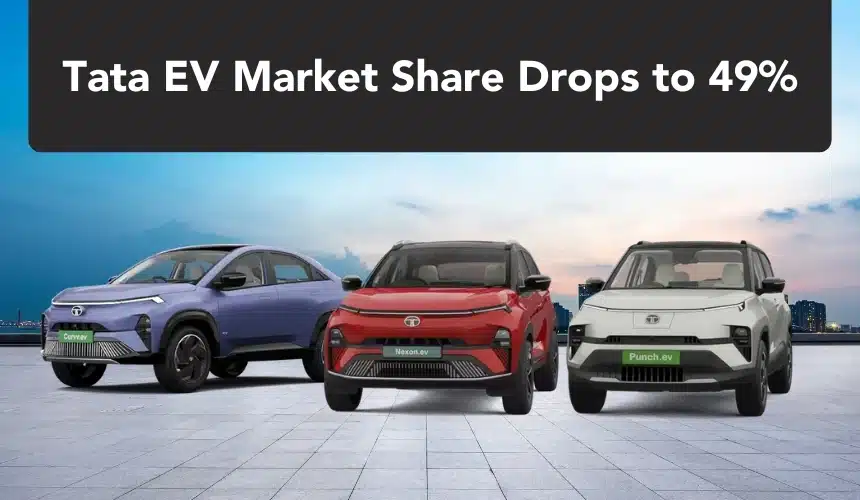Tata Motors’ Strategy to Dominate India’s EV Market

Tata Motors, India’s leading electric vehicle (EV) manufacturer, is making significant strides to maintain its competitive edge in a rapidly evolving market. With increasing competition from both domestic and international players, the company is focusing on locally manufactured EV batteries. This strategic move aims to enhance its supply chain and solidify its position in the industry. P.B. Balaji, the group CFO of Tata Motors, shared insights on the company’s plans during a recent interview. As new entrants like Mahindra & Mahindra, Hyundai Motor, and Maruti Suzuki prepare to launch their own EVs, Tata Motors is determined to stay ahead of the curve.
Challenges in the EV Market
Tata Motors has seen its market share in the EV sector decline from 73% to 62% in just one year. This shift is largely due to the emergence of competitors like JSW MG Motor, which has gained traction with its new vehicle offerings. The landscape is becoming increasingly competitive, with established players and new entrants alike vying for a piece of the growing EV market. Global giants like Tesla are also eyeing India, adding to the pressure on Tata Motors to innovate and expand its offerings.
Despite these challenges, Tata Motors remains optimistic. The company is investing heavily in its battery production capabilities, which will allow it to control costs and improve efficiency. The establishment of a battery gigafactory in India, backed by a $1.5 billion investment, is a crucial step in this direction. Balaji emphasized that this initiative will enable Tata Motors to integrate its supply chain more effectively, ensuring that it can respond swiftly to market demands and maintain its leadership position.
Investment in Battery Production
Tata Motors is set to gain a significant advantage with the upcoming production of lithium-ion battery cells by Agratas, the Tata Group’s battery arm. Scheduled to begin in 2026, this facility will provide Tata Motors with greater control over one of the most expensive components of electric vehicles. Balaji noted that while launching new cars is essential, sustaining their success in the long term is even more critical. The battery plant in Gujarat is expected to operate at full capacity by 2028, further solidifying Tata’s position in the market.
This strategic investment in battery production is complemented by Tata Motors’ diverse range of EV models, which cater to various consumer segments. The company offers vehicles priced between $10,000 and $27,000, making them accessible to a broader audience. By leveraging the resources of other Tata Group companies, Tata Motors can keep its costs low while ensuring a steady supply of components and charging infrastructure.
Financial Backing and Future Growth
Tata Motors is well-positioned financially to navigate the competitive landscape of the EV market. The company has secured $1 billion in funding from U.S. private equity firm TPG and is set to benefit from India’s incentive program for electric vehicles. Balaji mentioned that Tata Motors expects to receive approximately $750 million over the next four years, with the first tranche of $17 million already received.
This financial backing will allow Tata Motors to invest in research and development, marketing, and production capabilities. As battery prices continue to decline, the company anticipates that its operations will become increasingly self-sustaining. The growth potential for EVs in India is significant, with analysts predicting that sales could double in 2025, driven by new launches and increased consumer interest.
Tata Motors aims to increase the share of electric models in its overall sales from 12% in 2024 to 30% by 2030. This ambitious goal reflects the company’s commitment to leading the EV revolution in India and adapting to the changing market dynamics.
Observer Voice is the one stop site for National, International news, Sports, Editor’s Choice, Art/culture contents, Quotes and much more. We also cover historical contents. Historical contents includes World History, Indian History, and what happened today. The website also covers Entertainment across the India and World.
Follow Us on Twitter, Instagram, Facebook, & LinkedIn

